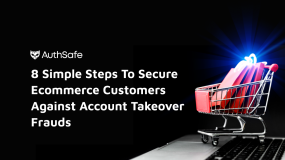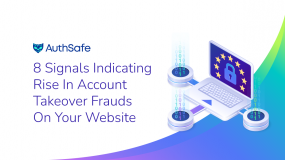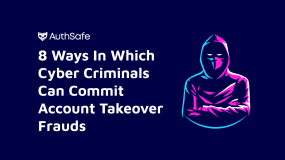
Welcome to the world of online fraud prevention for small business owners using WHMCS and Blesta! As a small business owner, you know that running an online business comes with its fair share of challenges. One of those challenges is protecting your business and customers from online fraud. But fear not, dear business owner, for we have some tips and tricks to keep your online business safe and secure. In this guide, we’ll be delving into the best practices for preventing online fraud when using WHMCS and Blesta, two popular web hosting management systems and invoicing platforms. So sit back, grab a cup of coffee (or tea, we don’t judge) and let’s dive into the world of online fraud prevention.
Best practices for preventing fraud when using WHMCS and Blesta
By implementing the best practices for preventing fraud when using WHMCS and Blesta, you can sleep soundly knowing your customer’s sensitive information is safe and secure. Think of it as hiring a virtual bodyguard for your website – they may not be physically present, but they’ve got your back 24/7.
Here are 7 best practices for you to follow.
1. Use strong passwords
One of the easiest ways to prevent online fraud is using strong passwords. Experts estimate that 80% of data breaches are linked to weak passwords.
A strong password should be at least 8 characters long and include a combination of upper and lowercase letters, numbers, and special characters. Avoid using common words or phrases, and never use the same password for multiple accounts.
WHMCS and Blesta both have options for password strength requirements, so you can ensure that your users create strong passwords when creating an account. You can also use a password manager to generate and store strong passwords for your accounts.
2. Enable two-factor authentication
Two-factor authentication adds an extra layer of security to your login process. When you enable two-factor authentication, you’ll be required to enter a code in addition to your password when you log in. This code is typically sent to your phone or email as a text or email message.
WHMCS and Blesta both have options for enabling two-factor authentication. This is especially important for accounts with sensitive information, like financial accounts or admin accounts.
3. Use SSL certificates
SSL (Secure Sockets Layer) certificates secure the connection between your website and your visitors’ browsers. When a website has an SSL certificate, the connection is encrypted, making it more difficult for hackers to intercept sensitive information.
WHMCS and Blesta both offer options for installing SSL certificates on your website. This is especially important if you have an online store or accept sensitive customer information.
4. Monitor for suspicious activity
Even with strong passwords and two-factor authentication, it’s still possible for your accounts to be compromised. That’s why it’s important to regularly monitor your accounts for suspicious activity. This could include unexpected logins from unfamiliar locations, unusual account activity, or unauthorized changes to account settings.
WHMCS and Blesta have options for monitoring account activity and alerting you to any suspicious activity. This can allow you to take action and prevent further damage.
5. Educate your employees
One of the most important things you can do to prevent online fraud is to educate your employees about the risks and how to recognize and avoid them. This includes training on how to identify and report suspicious activity, as well as how to handle sensitive customer information.
For example, you should teach employees never to share login credentials, passwords, and security questions with anyone. They should also be trained to recognize phishing attacks designed to trick them into giving away sensitive information or installing malware on their computer.
In addition to training your employees, you should also consider implementing policies and procedures to help prevent online fraud. For example, you might require employees to use strong passwords and regularly change them. You can also implement two-factor authentication for logging into sensitive systems.
6. Protect sensitive information
In addition to educating your employees, it is also important to protect sensitive customer information. This includes using secure servers and encrypted communication and implementing measures to prevent data breaches.
For example, when using WHMCS or Blesta, you should ensure that your hosting provider has proper security measures to protect your server from unauthorized access. You should also consider implementing additional security measures, such as firewalls and intrusion detection systems.
In addition, you should regularly update your software to ensure that you are protected against the latest security vulnerabilities. This includes updating your WHMCS or Blesta software and any other software or plugins you use.
7. Use reputable payment processors
Another important step in preventing online fraud is to use reputable payment processors. This helps to ensure that your online payments get safe and secure processing to reduce the risk of fraud.
For example, when using WHMCS or Blesta, you should consider using a payment gateway such as PayPal or Stripe, which has strong fraud prevention measures. These payment processors use advanced security measures, such as encryption and fraud detection algorithms, to protect your transactions.
In addition to using reputable payment processors, you should consider implementing additional fraud prevention measures, such as fraud scoring or filters. These tools help to identify and prevent fraudulent transactions before they take place.
To conclude,
Online fraud prevention is crucial for small business owners who use WHMCS and Blesta. By implementing best practices such as using secure passwords, enabling two-factor authentication, and keeping software up-to-date, small business owners can protect themselves and their customers from potential fraud.
Additionally, it’s important to keep an eye out for suspicious activity and to be aware of common scams that can occur.
Remember, prevention is key and a little bit of caution can go a long way in keeping your business and customers safe. So, don’t let fraud ruin your business, be proactive and stay vigilant!
Don’t be afraid to take charge and put those fraud prevention measures in place today! By educating your employees, protecting sensitive information, and using reputable payment processors, you can reduce the risk of online fraud and help keep your business and customers safe. For more information connect with us today.






